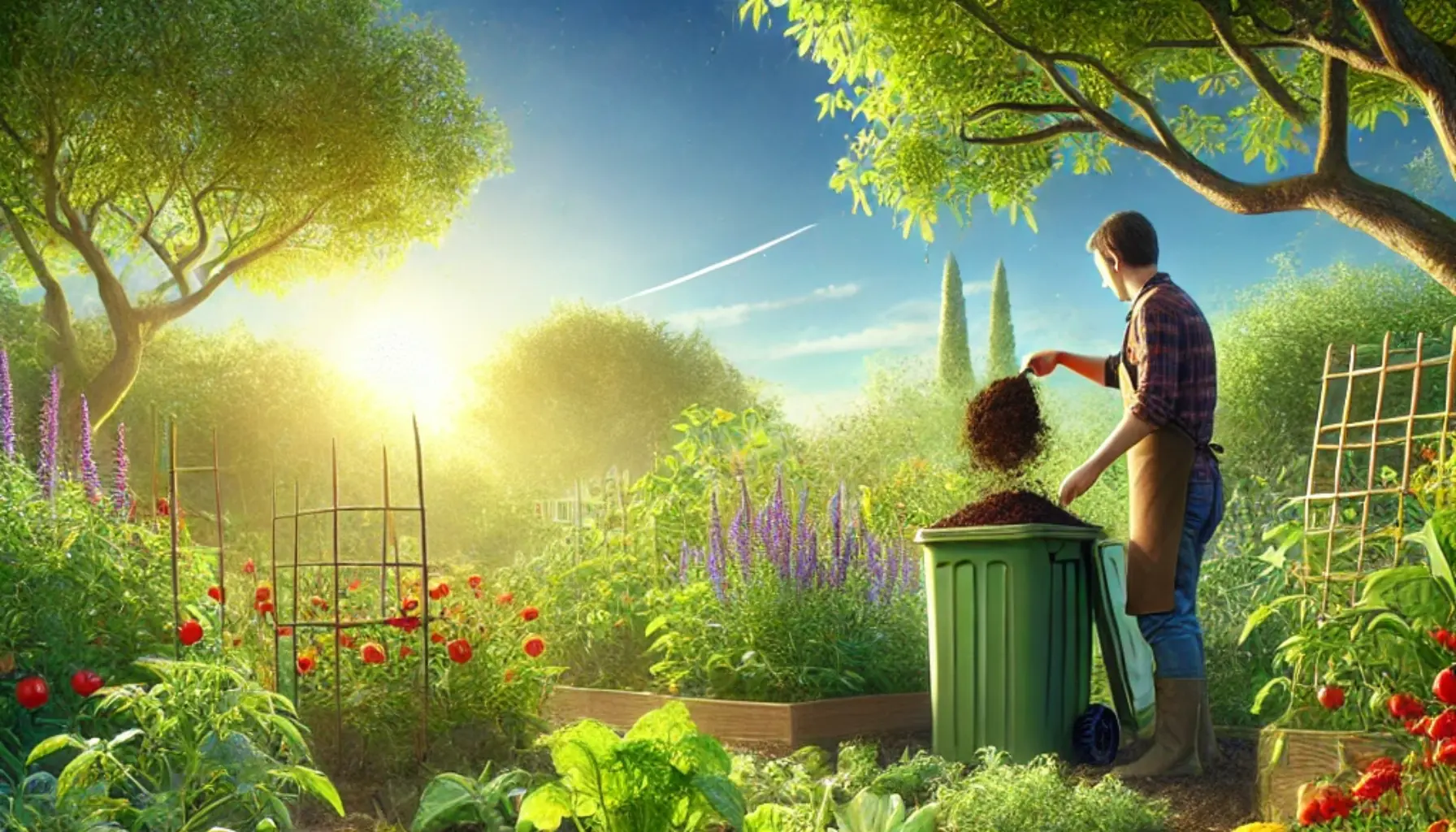Organic gardening is more than just a trend—it’s a sustainable way to grow healthy plants while preserving the environment. By avoiding chemical fertilizers and pesticides, organic gardening emphasizes natural solutions and promotes biodiversity. Whether you’re a seasoned gardener or just starting out, this guide will help you embrace organic gardening practices for a thriving and eco-friendly garden.
What is Organic Gardening and Why Should You Choose It?
Organic gardening is the practice of cultivating plants without synthetic chemicals, focusing on natural methods to enhance soil health, control pests, and boost plant growth. It’s about creating a self-sustaining ecosystem where plants, soil, and beneficial organisms coexist harmoniously.
Why go organic?
- Healthier Produce: Fruits and vegetables grown organically are free from harmful pesticide residues.
- Environmental Protection: Organic gardening minimizes pollution and preserves soil fertility.
- Biodiversity: Encourages beneficial insects, birds, and microbes that support a healthy garden.
- Sustainability: Reduces dependence on non-renewable resources and promotes long-term soil health.
Choosing organic gardening is a step toward healthier living and a more sustainable planet.
Preparing the Soil: The Foundation of Organic Gardening
Healthy soil is the cornerstone of any organic garden. Unlike chemical fertilizers, organic methods focus on enriching the soil naturally to support plant growth.
- Compost:
- Create compost using kitchen scraps (vegetable peels, coffee grounds) and yard waste (leaves, grass clippings).
- Spread mature compost over your garden beds to boost soil fertility and improve its structure.
- Natural Fertilizers:
- Use organic materials like manure, bone meal, or fish emulsion to provide essential nutrients.
- Avoid synthetic fertilizers, which can harm soil microorganisms.
- Soil Testing:
- Test your soil to determine its pH and nutrient levels. Most plants thrive in soil with a pH between 6.0 and 7.0.
- Mulching:
- Apply organic mulch (straw, wood chips, or shredded leaves) to retain moisture, regulate temperature, and suppress weeds.
By focusing on soil health, you’re setting the stage for strong, resilient plants.
Choosing the Right Plants for Your Organic Garden
The success of an organic garden often depends on selecting the right plants. Opt for varieties that are well-suited to your local climate and naturally resistant to pests and diseases.
- Native Plants:
- Native species are adapted to local conditions, requiring less water and care.
- Heirloom Varieties:
- These plants are open-pollinated and have been passed down for generations, offering unique flavors and characteristics.
- Disease-Resistant Plants:
- Many seed catalogs label plants that are resistant to common pests and diseases. Look for these options to reduce potential problems.
- Companion Planting:
- Pair plants that support each other’s growth. For example, marigolds deter nematodes, while basil repels whiteflies when planted near tomatoes.
Choosing the right plants ensures a productive and balanced organic garden.
Natural Pest and Disease Control in Organic Gardening
Without chemical pesticides, organic gardening relies on natural and sustainable methods to manage pests and diseases.
- Encourage Beneficial Insects:
- Attract predators like ladybugs (which eat aphids) and lacewings by planting flowers like dill, cosmos, and yarrow.
- Neem Oil:
- A natural, organic pesticide effective against a wide range of pests, including aphids and spider mites. Mix with water and apply directly to affected areas.
- Homemade Sprays:
- Garlic or chili sprays can deter pests like caterpillars and beetles. Mix crushed garlic or chili with water, strain, and spray on plants.
- Crop Rotation:
- Avoid planting the same crops in the same spot each year to break pest and disease cycles.
- Handpicking:
- Remove larger pests, like caterpillars or slugs, manually and relocate them away from your garden.
- Healthy Plants:
- Strong plants are naturally more resistant to pests and diseases. Ensure they receive proper sunlight, water, and nutrients.
These methods not only protect your plants but also maintain the ecological balance of your garden.
Sustainable Watering and Maintenance Practices
Efficient water use and regular maintenance are key components of organic gardening.
- Water Wisely:
- Water early in the morning or late in the evening to reduce evaporation.
- Use drip irrigation systems for precise watering directly at the roots.
- Rainwater Harvesting:
- Collect rainwater in barrels to reduce your reliance on municipal water and save resources.
- Weed Management:
- Remove weeds manually or use mulch to suppress their growth. Avoid chemical herbicides.
- Pruning:
- Regularly prune dead or diseased leaves to encourage healthy growth and prevent pest infestations.
- Monitor Regularly:
- Inspect your garden weekly for signs of stress, pests, or diseases. Early detection prevents larger problems.
Sustainable practices help you conserve resources while keeping your garden healthy.
Reaping the Rewards: Long-Term Benefits of Organic Gardening
Organic gardening isn’t just about growing plants—it’s about cultivating a healthier lifestyle and environment. Here are some of the lasting benefits:
- Healthier Food:
- Organically grown produce is fresher and free from harmful chemicals.
- Enhanced Soil Health:
- Organic practices build soil structure and fertility, ensuring long-term productivity.
- Environmental Impact:
- Reducing chemical use helps protect water sources, wildlife, and pollinators like bees.
- Emotional Well-Being:
- Gardening has therapeutic benefits, reducing stress and fostering a deeper connection with nature.
- Community Building:
- Sharing organic gardening practices and produce fosters stronger connections within your community.
Start Your Organic Garden Today
Organic gardening is a rewarding journey that combines sustainable practices with the joy of nurturing plants. By focusing on soil health, natural pest control, and thoughtful maintenance, you can create a thriving garden that benefits both you and the environment.
With these tips, you’re ready to embark on your organic gardening adventure.

